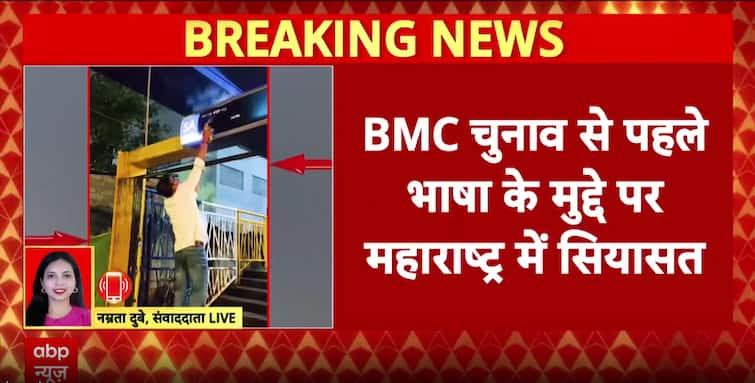Last Updated:
Keir Starmer has confirmed that only those with digital IDs will be able to work in Britain. The plan is being pitched as a tool to curb illegal working & strengthen border control

UK PM Keir Starmer | Image: File
The United Kingdom is preparing for one of its biggest changes to identity verification in decades. Prime Minister Keir Starmer has confirmed that by the end of the current Parliament, which runs until 2029, people will not be able to work in Britain without a digital ID.
The proposal comes against the backdrop of Britain’s long-running struggle with irregular migration. In recent years, thousands of people have attempted to enter the country in small boats across the Channel, the narrow stretch of sea that separates southern England from northern France. Immigration became one of the central issues in the last general election, which brought Starmer’s Labour Party to power after 14 years of Conservative rule.
Recommended Stories
For Starmer, the digital ID is a way of responding to those pressures. He argues that the possibility of finding employment is one of the main reasons people attempt to enter the UK illegally. At present, it is relatively easy for undocumented workers to use borrowed or forged National Insurance numbers to secure jobs.
While addressing a gathering of world leaders in London, Starmer said, “Digital ID is an enormous opportunity for the UK. It will make it tougher to work illegally in this country, making our borders more secure.”
What Is The UK’s Digital ID Card?
Despite the name, the new scheme will not involve citizens carrying a plastic card. It will be app-based, with credentials stored directly on smartphones. The government has compared it to services Britons already use, such as the NHS App, which allows patients to access medical records and vaccination certificates, or to contactless bank cards.
According to the UK government’s website, each digital ID will include a person’s name, date of birth, nationality or residency status, and a photograph, with biometric security at its core. A consultation later this year will examine whether adding further information, such as an address, would be useful.
The government has also emphasised that the system will rely on state-of-the-art encryption and authentication, the same kind of security used in millions of digital transactions every day. If a device is lost or stolen, the credentials can be revoked and reissued immediately, which the government says makes the scheme more secure than paper documents.
Will Digital ID Be Mandatory For Everyone?
The system will be compulsory for all UK citizens and legal residents who want to work. Employers will no longer be able to rely on National Insurance numbers or paper documents when hiring. Landlords will also be required to verify IDs before renting properties.
For groups not seeking employment, such as students, pensioners, or children, the digital ID will be optional. The UK government has clarified that people will not be required to carry it on a daily basis, and it will not be needed to access healthcare or welfare services.
What Benefits Could Digital ID Cards Offer Citizens?
While the immediate aim of the scheme is to curb illegal working and secure borders, the UK government has also presented it as a way to simplify everyday life. Once operational, digital IDs are expected to make routine processes faster, such as applying for a driving licence, accessing childcare benefits, reviewing tax records, or handling other government paperwork.
Starmer himself has pitched this efficiency as a selling point, saying the system will let people prove their identity quickly rather than, in his words, “hunting around for an old utility bill.” The government argues that replacing paper checks with secure digital credentials will not only cut bureaucracy but also reduce the risk of fraud.
How Does Britain’s Plan Compare With Other Countries?
The UK is following a path already taken by many nations. Estonia introduced a mandatory digital ID in 2002, which citizens now use to access banking, medical services, and even online voting. Denmark and Australia operate voluntary digital ID apps that people can download for both government and private services.
India offers one of the world’s largest examples of digital identity through Aadhaar. Every resident is assigned a unique 12-digit number linked to biometric details, which is now used widely across welfare schemes, banking services, and tax records. Its scale and integration have made it a reference point for other countries considering nationwide systems.
Other countries, from Singapore and France to the United Arab Emirates, South Korea, and Costa Rica, also use digital identity programmes.
Has The UK Tried Identity Cards Before?
Britain’s relationship with identity cards has been uneasy for more than a century. The country has never had a permanent, nationwide identity system in peacetime, and attempts to create one have often been met with resistance.
Compulsory ID cards were first introduced during the Second World War as a wartime measure. They remained in place for several years after the conflict, but public frustration grew as people complained that they were expensive to maintain and were being used by police in ways that went beyond their original purpose. In 1952, Winston Churchill’s government formally abolished the system, setting a precedent that identity cards were not compatible with normal civilian life.
The debate resurfaced in the early 2000s, when Tony Blair’s Labour government legislated for voluntary ID cards. These were meant to modernise identity checks and address concerns over terrorism and illegal immigration after the 9/11 attacks and the London bombings. However, the plan faced sharp criticism on grounds of cost, privacy, and fears of creeping surveillance. When the Conservative–Liberal Democrat coalition came to power in 2010, one of its first acts was to scrap the scheme, with then–Home Secretary Theresa May calling it “intrusive, bullying and ineffective.”
What Is The Political Reaction?
The announcement has divided British politics. Labour defends the policy as essential for border control and fairness in the labour market. The far-right Reform UK has dismissed it as ineffective against small boat crossings. Conservative leader Kemi Badenoch has said a mandatory scheme requires a “proper national debate,” warning about costs and burdens for law-abiding citizens. The Liberal Democrats have pledged to fight the plan, branding it bureaucratic and expensive.
What Happens Next?
The government will launch a consultation later this year to decide the final design, including how to support non-digital users and what safeguards to put in place. By law, the scheme must be fully operational before the next general election, which is scheduled for no later than August 2029.
About the Author

Karishma Jain, Chief Sub Editor at News18.com, writes and edits opinion pieces on a variety of subjects, including Indian politics and policy, culture and the arts, technology and social change. Follow her @kar…Read More
Karishma Jain, Chief Sub Editor at News18.com, writes and edits opinion pieces on a variety of subjects, including Indian politics and policy, culture and the arts, technology and social change. Follow her @kar… Read More
September 29, 2025, 13:05 IST
Loading comments…
Read More



